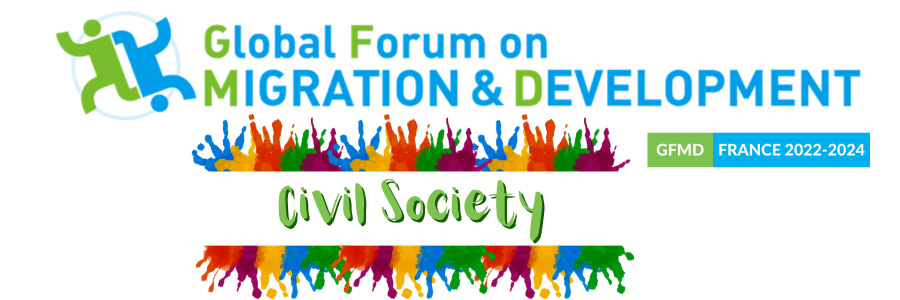Skilling strategies must prioritize regularization for all skill levels of laborers, include soft and technical skills, and recognize migrant communities as contributors.
Over 150 delegates gathered for the roundtable discussion on Skilling Migrants for Employment on the fourth day of the 13th Global Forum on Migration and Development (GFMD) Summit. The round table took a closer look at the issue through the lenses of building back better during and after the COVID-19 pandemic, and holistic approaches to skills-based mobility.
The COVID-19 pandemic has made the global dependence on labor mobility even more apparent, as well as the need to address labor gaps at all levels, said co-chair Victoria Hermon, Department for International Development, United Kingdom. The digital revolution is a further factor of complexity, noted co-chair Robert Eric Borje, Office of the President, Philippines.
Speaking for the civil society mechanism, Stella Opoku-Owusu, African Foundation for Development (AFFORD), linked the skilling of migrants with labor migration governance. The pandemic has highlighted how a lack of legal pathways for low-wage migrant workers in particular results in irregular migration or the loss of regular status. She noted that there had been little development of pathways for skilling for employment and for regularization.
Gaps in skills recognition and in training opportunities for migrants represent a further challenge, Opoku-Owusu said. When their qualifications are not accredited, migrants are at increased risk of being exploited and undercompensated for their labor. Irene de Lorenzo, UNICEF, highlighted the agency’s work to develop platforms that cover recognition for informal qualifications. She also pointed to the potential of skilling before, during and after migration to reduce patterns of irregular migration, especially for children and youth.
“We need to find creative ways to provide people with the work that is needed and ensure that it is rights based and human centered.”
Stella Opoku-Owusu, African Foundation for Development (AFFORD)
Opoku-Owusu called for skill partnerships as an integral part of bilateral agreements and a whole-of-society approach that involves civil society, with migrant and diaspora communities at the center. She lifted up a rights-based, transnational agreement that enables nurses in the Philippines to be trained in Germany for future employment and allows migrants to bring their families with them. The agreement should be seen as a best practice model, affirmed Herbert Beck, Public Services International (PSI).
Opoku-Owusu also highlighted the two-fold importance of technology in building back with better economic resilience: digital skilling and upskilling are needed, particularly in the face of mobility restrictions, and digital technology can serve as a tool for skilling processes.
Other delegates seconded the need to focus efforts on soft and secondary skills like communication, financial literacy and marketing. Michele Klein-Solomon, International Organization for Migration, noted that training requirements go beyond the technical skills for a specific job. Basic soft skills are actually survival skills that migrant workers will carry with them wherever they go, added Stephen Yee, Singapore National Employers Federation.
Core to any skilling strategies should be the recognition of migrants and their communities as contributors to their communities, emphasized Opoku-Owusu. Migrants are not only employees but also job creators and knowledge bearers. Borje welcomed this awareness of labor migrants as contributors, not just beneficiaries.
Opoku-Owusu concluded her remarks by urging a new approach for sustained economic recovery that prioritizes development of countries in the global South by creating jobs, developing skills and strengthening economies. “We need to find creative ways to provide people with the work that is needed and ensure that it is rights based and human centered,” she said.
Photo: Aaron Huber on Unsplash

